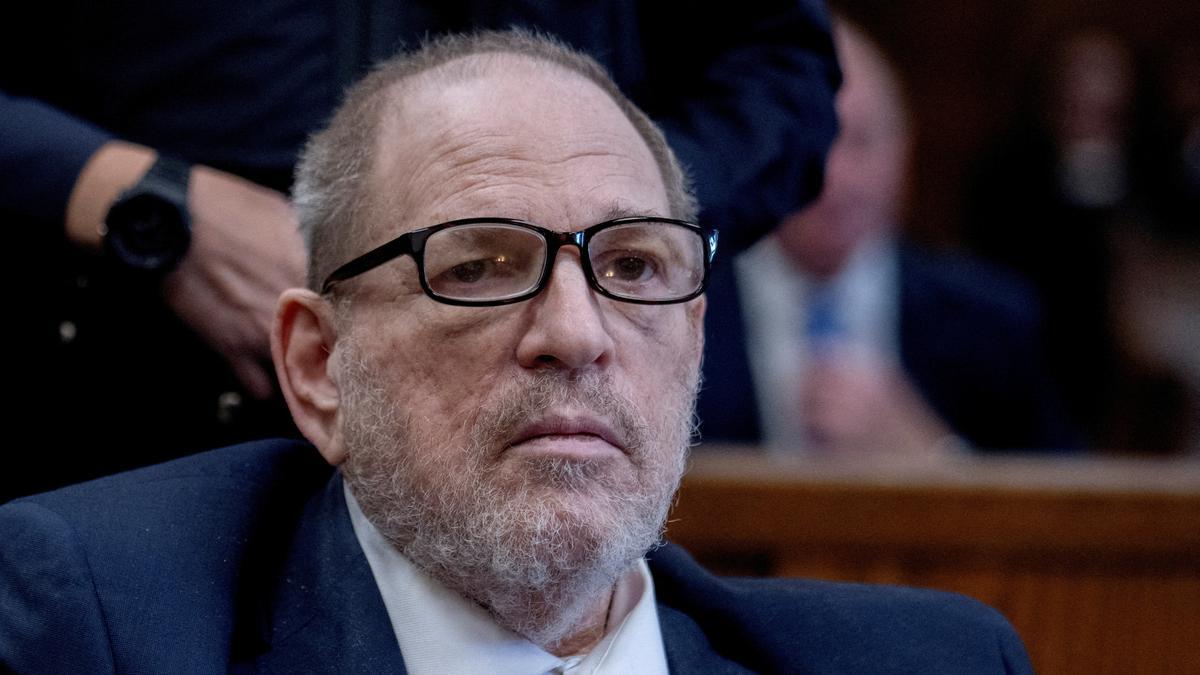
In a striking development concerning the former Hollywood powerhouse Harvey Weinstein, the once-dominant film producer, who became a focal point of the #MeToo movement in 2018, is now facing a new adversary—cancer. Weinstein has been diagnosed with chronic myeloid leukemia, an unusual form of cancer that specifically targets the bone marrow. Weinstein is receiving medical treatment while continuing to serve his sentence at the notorious Rikers Island prison in New York, as reported by NBC News.
This revelation comes in the wake of Weinstein’s already complex medical history over the past year. Back in July, he confronted both COVID-19 and double pneumonia, a serious lung infection that can complicate breathing. Moreover, merely last month, Weinstein underwent emergency heart surgery, adding to the growing list of his health challenges.
Harvey Weinstein remains at Rikers Island as he anticipates a retrial slated for November. This retrial follows the overturning of his 2020 rape conviction in New York; the conviction had initially sentenced him to 23 years behind bars. However, this past April, his conviction was overturned, and now he awaits further legal proceedings. His legal battles are far from over. Just last month, Weinstein faced additional sexual assault charges in New York. Despite these new indictments, he has resolutely pleaded not guilty. Now charged with three sex crimes under two separate indictments, Weinstein is poised to be arraigned on a later date determined by the court.
While the details of these recent indictments were disclosed in court, Weinstein himself was notably absent. His absence was due to a lack of medical clearance, though he later appeared in a wheelchair to enter a “not guilty” plea. The image of Weinstein, once a towering figure in the entertainment industry, now reduced to navigating court appearances in a wheelchair, underscores the vast changes his life has undergone since the allegations against him surfaced.
.
In the 1990s and 2000s, Harvey Weinstein was the epitome of success in Hollywood, a man whose influence and power were seemingly unrivaled. He was instrumental in producing critically acclaimed films and was a top power broker within the industry. However, his legacy began to unravel when numerous women, including prominent actresses like Ashley Judd, Mira Sorvino, and Cate Blanchett, accused him of sexual harassment and assault. These allegations catalyzed the #MeToo movement, which encouraged many survivors of sexual misconduct to speak out, shining a light on the pervasive issue within the industry and beyond.
The diagnosis of chronic myeloid leukemia adds another layer of complexity and uncertainty to Weinstein’s already tumultuous life. Chronic myeloid leukemia is a comparatively rare type of blood cancer that begins in the bone marrow, where blood cells are produced. It predominantly affects adults and progresses slightly more slowly than other types of leukemia. According to the Mayo Clinic, treatment can involve a range of approaches, from medications aimed at targeting cancerous cells to more intensive interventions such as chemotherapy and potentially a bone marrow transplant, depending on the severity and the individual patient’s condition.
Weinstein’s health concerns, when considered alongside his ongoing legal battles, highlight an intricate entanglement of issues that he must navigate from behind prison walls. For the public, the timing and nature of his health struggles raise numerous questions about the future. Will Weinstein’s health condition impact his ability to stand trial? How will the legal system accommodate his medical needs, if at all?
As Weinstein fights on multiple fronts, both personally and legally, the world watches with an intense gaze. His case continues to be emblematic of a seismic shift within Hollywood and the broader cultural arena, representing the downfall of someone once deemed untouchable by virtue of power and influence.
The former producer’s battle with chronic myeloid leukemia is the latest chapter in a narrative marked by legal drama, controversy, and personal health crises, serving as yet another reminder of the impermanence of power. For many, the continued developments in Weinstein’s life give rise to dialogue about accountability, justice, and the potential for change within industries historically shielded by clouds of silence and impunity. As these conversations persist, Weinstein’s story remains a pivotal touchstone in discussions around power, abuse, and the enduring quest for justice.












